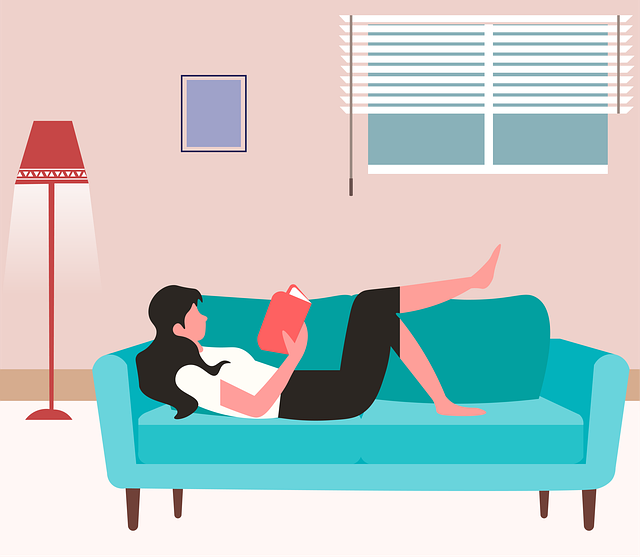What the "It's All Labor" Battle Misses

Embattled women everywhere are clawing back recognition that rearing children and making home is hard, valuable work, and that they do need real rest. (Predictably, there is a type of guy in the comments trolling these women with tired, sexist accusations, typically fantastical, such as "my wife sits at home while I work 80 hours a week in the center of the earth mining lava and the least she can do is everything else, and not expect recognition for her 80+ hours a week of flying solo/working.")
In this movement, there is an effort to identify all that mothers/female partners do as different types of labor. "Domestic labor is labor," is the battle cry, and it is in response to the how patriarchy codes all women's work as leisure, silly, simple, optional, overwrought, etc. An example of this is when people tell exhausted mothers that they just need to ask their partners for help, as though he can't see that she's working while he is not, as though he can't reckon that children need to be fed and laundry needs to be done. Then, when a woman does clearly communicate what's wrong and what is needed to fix it, she is told she needs to lower her standards and stop maternal gatekeeping. The unspoken accusation is that she's being controlling, needlessly fussy, and crazy, even though the issue at hand may literally be one of life and death, such as water safety or proper car seat use. The issue must always remain on the woman's head, because otherwise we would have to recognize the absolutely insane double standards when it comes to what it takes to be a bad mom or a good dad.
I'm planning a much more thorough series of articles for paid subscribers on the issue of what many refer to as "late stage capitalism," but which may be better termed the "World of Total Work," as coined by Josef Pieper in his classic Leisure: The Basis of Culture. "Total Work" refers to the disordered belief that work is the purpose of life. When we look at practically all religions, the underlying belief is actually the opposite. The real purpose of our lives is not work, but love, from that which we experience with family and friends, to that which we experience with our Creator. We work so that we can provide for our material needs, something which makes even mundane work meaningful.
Prior to the emergence of the Total Work World, we see the commonly held belief that all one has comes from some Higher Being, and thus does not rightfully belong to one without a sacrifice of time and space back to the Higher Being. Whether looking at the Greeks and their temples and festivals for Artemis and Zeus, or looking at Catholics and their cathedrals, holy days, and cycles of fasting and feasting, we see the practice of worship, a seeking to experience transcendence, a belief that human beings are living on a stage built by a Higher Being. It is common for agnostics and atheists to rediscover some aspect of religion, such as meditation or fasting, so they can meet the need humans have always had for transcendence, which deists would argue is ultimately communion with our Creator.
While the larger series will examine the underlying beliefs that make it so easy for us to objectify ourselves and each other, for now I want to share one important thought. Unfortunately, in a disordered culture, one that is a Total Work economy, the focus is on how valuable the work is rather than how valuable the people are. So, in this upside down world, it seems more effective to argue against all-consuming work by pointing out that burnout makes us worse at work, rather than pointing out that people need rest. We "justify" breaks by pointing out how they support people being better workers, rather than tackling the underlying disorder.
The current iteration of the women's liberation battle often rests upon identifying all areas of effort in family life as work, which then justifies breaks. Rather than combatting the "late stage capitalism" that most of these same content creators decry, they inadvertently further embed it into private life. They often face pushback from people who object to calling all effort expended on one's family work, claiming these women must not love their husbands and children. This accusation is a weaponization of female socialization, which trains women to believe that loving someone means giving all of oneself without reciprocation or considering one's own needs. The lie there is that a woman expecting reciprocation from her partner is the same thing as conditional love and a mother expecting mutuality from her co-parent and rest from constantly doing everything for her children is the same thing as being undedicated to her children. However, those making these accusations are on to something when they feel something is not quite right with labeling all acts of service to one's family as work, as though that is what makes the service valuable.
Further, much of what is currently packaged as rest or self-care is actually coercive social labor. A woman spending time getting beauty treatments is not engaged in self-care, but in performing femininity, for which she is typically rewarded with better treatment at work, home, and in public. If she does not engage in this work, she may be overlooked for jobs, promotions, and face accusations of "letting herself go" by others, as though letting her hair be whatever color it happens to be is the equivalent of rejecting oral hygiene. You can find an unlimited number of women online describing how beauty treatments are when they get time away from mothering without having to fight their lazy partners to step up and parent; obviously, these men are willing to make time for her to get away, as long as that time is spent still serving him, via looking the way he likes. However, as innumerable reels on Instagram demonstrate, women who take time for a hobby or a trip may face neglected children and a household that will take many hours to put back into order--in fact, this happens even if the woman just happens to be ill.
A radical (to-the-root) approach here is to start with the premise that the woman is fully human and all humans need leisure. Rest is not a perk or an option, but as essential to human life as love. One does not need to justify one's need for rest and leisure anymore than one needs to justify one's need for oxygen or nutrients.
If you are in a position where you find yourself trying to prove to household members that you have worked hard enough to deserve a rest, consider not doing this. Start from the premise that all human beings need and are entitled to rest, and thus the work in a household has to be shared or otherwise reduced until each member of the household has enough time to rest adequately.
Many books have been written by people amazed at how decluttering, downsizing, living on less, or otherwise streamlining the amount of work that goes into daily living has freed them up to experience a more transcendent life. For most people, there is no connection in their minds between women looking for equal partnership so they can rest more and families discovering that the only way to thrive is to make more space for non-work. However, these are effectively all people yearning for and finding different paths to leisure, whether it's getting a partner to forego half of their 20 hours of leisure so the other partner can have 10 also, or it's cutting housework by 10 hours a week via a strategy like decluttering or outsourcing.
While it is valuable to recognize that meal planning, gift shopping, organizing, errands, holiday magic, vacation planning, and the like are real work because they are often treated like silly self-inflicted work women invent to be annoying, it is even more valuable to start with First Principles. More primary than "women's contributions are valuable too!" is "women are fully human, and human flourishing is dependent upon adequate leisure." Women's liberation has spent hundreds of years fighting smaller battles, many instrumental in bringing us here, a place where women are educated, freely communicating and engaging in commerce. It is time to win the war, and that means operating from a position where we accept nothing less than recognition at every level that we are fully human, and human flourishing must be the goal of all that we do.

